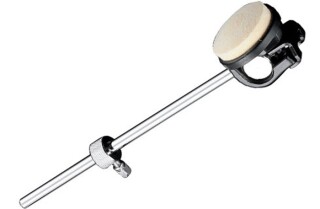A percussionist is someone who specializes in playing instruments that require hitting or scraping. These instruments may include the konga, cajón, bass drum, bongo, timpani, marimba, xylophone, vibraphone, bells, chimes, triangle, tambourine, and other such things.
Percussionists are one of the most important members of an orchestra or band. They are often referred to as the backbone, not just because they often stand in the back but because they provide the foundations for any musical ensemble.
Percussionists are oftentimes referred to as drummers but this is not always true. A drum-set or drum-kit is a combination of percussion instruments (bass drum, cymbals, snare, etc.) played with drum sticks. So drummers are percussionists but not all percussionists are drummers. Whether you are a drummer or a percussionist looking to be the next Alex Acuña or Francisco Aguabella, here are 10 tips to becoming the best percussionist.
Practice
You probably already know that keeping a steady practice habit will put you ahead of anyone who doesn’t practice consistently, but when it comes to percussion, how you practice is important.
You need to identify the areas of your playing that require the most attention and then tailor your practice to those areas. Importantly, your practice should revolve around tangible goals. Getting yourself a practice pad will come in handy.
Have General Knowledge of Musical Theory and Harmony
Like any musician, a good percussionist should know concepts of harmony and music theory as it will mostly likely be the main language of your bandmates.
Be Versatile
A percussionist uses several instruments through the course of a performance, providing the additional sounds a song requires to harmonize or make it complete. To become the best percussionist, don’t stop at one, your goal should be to learn as many percussion instruments as possible.
Develop skill and technique
There are some key skills that separate great percussionists from average ones. Simply experimenting with your sound, and targeted regular practice can help bring out your own style.
Private Lessons
It is highly recommended that you invest in private lessons. You may discover that you have been gripping your snare drum stick incorrectly all this while.
Get your Timing and Timekeeping Right
Timing refers to a drummer’s coordination of his own limbs, as well as his playing relative to the rest of the band. In contrast, timekeeping refers to a drummer’s ability to play in time with the pulse of the music. Being able to play complex rhythms at a consistent tempo over a period of time is a critical skill to develop as a percussionist. Practicing with an electronic drum set and playing along a recorded piece are some ways to perfect your timing and timekeeping.
Invest in the Right Equipment
Get yourself a drum-kit, snare stand, shoes, etc. You don’t have to break the bank; you can always find affordable options available in the market.
Choose The Right Percussion Instrument for Every Musical Piece
There are different percussion instruments and each one has its own unique sound. So when presented with a genre or a musical arrangement, it is your job to choose the right percussion instrument.
Understand the structure of the piece
As a percussionist, it is your responsibility to master what you’re required to play. Don’t always depend on improvisation, study the piece and memorize it. Utilizing a metronome in practice is vital to your ryhthm and developing a strong beat.
Stay in Shape
Finally, it is necessary to be in good physical condition since these are instruments that will demand the performance of our entire body and endurance. We recommend jogging, going to the gym, and eating healthy to help keep you in shape so you can nail that 10 minute song without breaking a sweat.
In conclusion
To be a great percussionist is to practice every day and let your creativity guide you. You are not just another band member, you set the tempo for other band members to follow.






